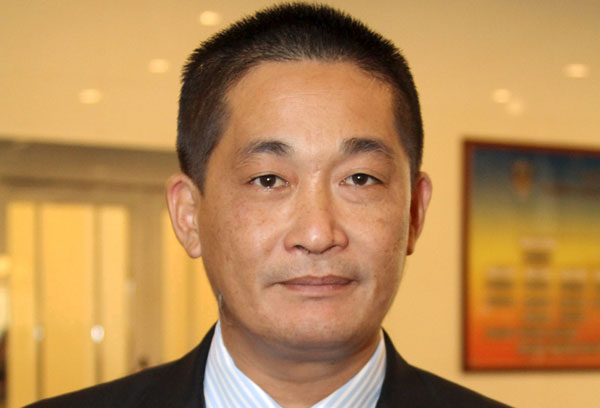
See Chee How
KUCHING: The Budget 2017 tabled by Prime Minister Datuk Seri Najib Tun Razak at Parliament has dashed any hope that Sarawak and Sabah would get generous grants as an under-developed region to catch up with basic amenities and infrastructural development in the Peninsular Malaysia, PKR Sarawak vice chairman See Chee How has said.
He said it was clear through the budget that the federal government had failed Sarawakians and Sabahans.
He pointed out that the prime minister and the federal government made no commitment to the specific requests made by Sarawak.
He said the increased equity in the oil and gas industry demanded by the state through higher petroleum royalty was not addressed.
“Similarly, the state has sought a review of the special grants for Sarawak pursuant to the Tenth Schedule, promised to be reviewed every five years after the formation of Malaysia but was only reviewed once in 1969! The Budget 2017 has made no mention of this financial review.”
See added Budget 2107 also ignored the state government’s request for the return of stamp duties for land transfer, mortgage and other dealings, which was under the state’s jurisdiction and rightfully revenue for the state, but was wrongfully taken away from the state by the federal government.
“Without the financial resources, it will be difficult for the state to carry out the rural and social economic transformation programmes that are earmarked by the state administration, to narrow the vast development disparity between Sarawak and Peninsular Malaysia, and between the urban and rural segments of Sarawak.”
As an immediate remedial action, See said the state would have to fork out a considerable sum from its reserve funds to carry out the needed rural and social economic transformation programmes.
“It is, therefore, foreseeable that the state will have to make a critical decision to mobilise a considerable sum from our state reserves to take care of the essential needs of the state and our people in presenting our state budget this late November.”
For the long term, and to sustain balanced growth and development for the East and West Malaysia, See opined that it was imperative for the two East Malaysian state governments and the federal governments to seriously tackle the development disparity due to neglect by giving the states greater autonomy in resource management, bigger administrative and legislative power, as well as budgetary independence.
He said the budget was a wakeup call for political leaders in Sarawak and Sabah that they must work together as an alliance to demand for equitable development and economic justice.
“With the electoral promises made by the prime minister, particularly on state rights and interests, that had resulted in the huge electoral success in the recent Sarawak state election, the Budget 2017 is in essence a litmus test, indicative of the federal government’s sincerity and commitments to fulfill their pledges of granting the East Malaysian states greater autonomy with the process of devolution of powers to Sarawak and Sabah getting underway.
“More than a year has transpired since the government announced the setup of the joint committees of federal and state legislators and administrators to work on the areas and process of devolving powers from the federal to the two East Malaysian states.
“It is clear to all that those promises and purported efforts were mere shadow plays aiming at the just-concluded Sarawak state election and to placate the intense regional sentiments amongst the Sarawakians and Sabahans.
“We have to ask: ‘Where is there an item that shows an area and its degree of devolved federal power, autonomy and budgetary independence of Sarawak and Sabah?’”
See pointed out that this was the single most significant concern of Sarawakians but the prime minister and the federal government had made no commitment in Budget 2017.
“It smacks of the sheer arrogance of the Umno-led BN (Barisan Nasional) in treating Sarawak and Sabah as their electoral fixed deposit states.”
See also noted that only 18.26 per cent of the budget was for development expenditure while 81.74 per cent was for operating expenditure.
He added that the nominal reduction in taxes and increase in 1Malaysia People’s Aid (BR1M) were ‘sugar coating for a bitter budget’ and would not ease the burden of the people, especially those in the lower income groups as those reliefs would be easily gobbled up by Goods and Services Tax (GST), the removal of subsidies for essential goods and the increase in expenditure for basic amenities and services such as healthcare and education.
